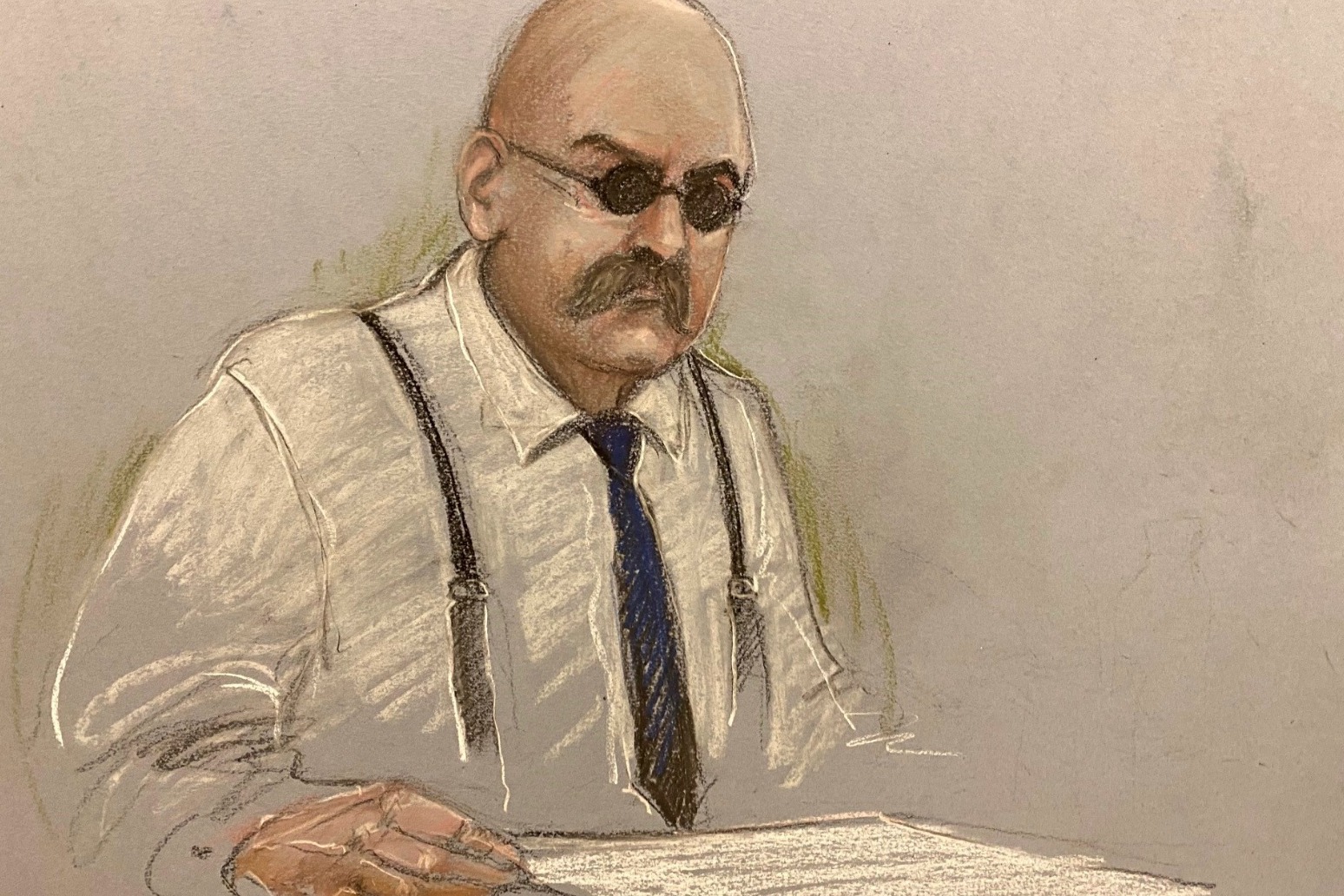
Notorious prisoner Charles Bronson has lost a Parole Board bid to be freed from jail.
The decision comes after one of the UK’s longest-serving prisoners – who changed his surname to Salvador in 2014 – took part in one of the country’s first public parole hearings earlier this month.
In a document detailing the decision published on Thursday, the Parole Board said: “After considering the circumstances of his offending, the progress that Mr Salvador has made while in custody and the evidence presented at the hearings, the panel was not satisfied that Mr Salvador was suitable for release.
“Nor did the panel recommend to the Secretary of State that he should be transferred to an open prison.”
Responding to the decision, Bronson’s son George Bamby told the PA news agency: “I would have loved Charlie to have been released but completely respect the decision of the Parole Board.”
Once dubbed one of Britain’s most violent offenders, Bronson has spent most of the past 48 years behind bars, apart from two brief periods of freedom during which he reoffended, for a string of thefts, firearms and violent offences, including 11 hostage-taking incidents in nine different sieges.
Victims included governors, doctors, staff and, on one occasion, his own solicitor.
Bronson was handed a discretionary life sentence with a minimum term of four years in 2000 for taking a prison teacher at HMP Hull hostage for 44 hours. Since then, the Parole Board has repeatedly refused to direct his release.
Three parole judges considered his case during a hearing at HMP Woodhill in Milton Keynes, Buckinghamshire, while members of the press and public watched part of the proceedings on a live stream from the Royal Courts of Justice in central London.
Bronson – whose real name is Michael Peterson and has previously been diagnosed with anti-social personality disorder – told parole judges he loved a “rumble” and enjoyed mass brawls in prison, but insisted he is now a reformed prisoner, has found solace in art and is a man of “peace”.
He likened his experience in front of the Parole Board to being on BBC programme The Apprentice.
A psychologist told the panel Bronson has post-traumatic stress disorder after facing some “brutal and unacceptable” treatment behind bars. He has been held in solitary confinement for much of his time in jail.
During the hearing he was described as holding “anti-authoritarian views” and being “suspicious” of the motives of others, as well as having a “romanticised” view of violent incidents in the past.
None of the prison and probation officials who gave evidence at the parole hearing said he was ready to be released.
The summary of the Parole Board decision said the panel “accepted that Mr Salvador genuinely wants to progress and that he is motivated to work towards his release. It thought that there was evidence of improved self-control and better emotional management”.
But the parole judges were “mindful of his history of persistent rule breaking and that Mr Salvador sees little wrong with this. He lives his life rigidly by his own rules and code of conduct and is quick to judge others by his own standards”.
“His positive progress has to be assessed in the context of him being held in a highly restrictive environment”, the document said, adding that it was “unknown exactly what is containing Mr Salvador’s risk. It is unclear whether the strong external controls of custody are mainly responsible or whether his attitudes have genuinely changed”.
The Parole Board said it “could not be satisfied” Bronson had the “skills to manage his risk of future violence until he has been extensively tested outside of his current highly restricted environment”.
Decisions on moving and categorising prisoners are “entirely a matter for the Secretary of State” and the Parole Board said it would not normally comment on such matters, but added: “However, in the particular circumstances of this case, the panel observed that there is an identified pathway for Salvador in custody and the evidence supported such a move within a closed prison.”
This is a “pivotal point in Mr Salvador’s sentence, when his motivation to desist from violence is at its highest” and both psychologists instructed by Mr Salvador’s lawyers were “unequivocal in their view that he no longer requires the secure placement in his current prison”, the papers said.
Bronson is the second inmate in UK legal history to have his case heard in public after rules were changed last year in a bid to remove the secrecy around the process.
Published: by Radio NewsHub

